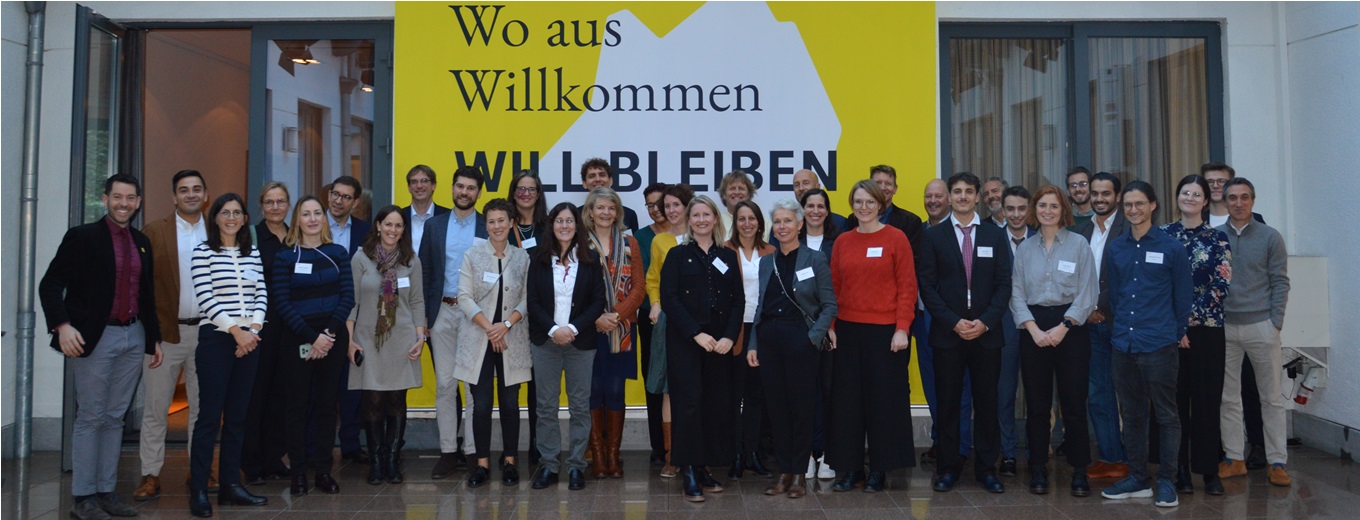Three successful days of meetings with Swiss higher education, VET and youth organisations were concluded with positive developments in the Swiss-EU relations.
This year’s SwissCore Education Seminar concluded with a very positive development in the Swiss-EU relations. The Swiss government decided on Wednesday, 8 November 2023, to instruct the Ministry of Foreign Affairs to draft a negotiation mandate for a future package of bilateral agreements with the EU, including the participation in EU programmes. This news item was announced during the reception at the Swiss Mission to the EU hosted by Swiss Ambassador Rita Adam. The positive conclusion of the Seminar was preceeded by three days of intense exchanges between delegates from the Swiss higher education, vocational training and youth sectors and with EU colleagues. The highlights were meetings with the European Commission on the state of play of the Erasmus+ programme, in particular on Centres of Vocational Excellence, Blended Intensive Programmes and European Universities, and discussions with experts on the future of the programme.
The first day of the education seminar was dedicated to the current situation of Swiss-EU collaboration in education. The objective of the Swiss government to re-join Erasmus+ was strongly reiterated. This is also in line with the mobility strategy of the Swiss confederation and the Cantons stating that each person in Switzerland should have at least one international exchange experience in their life. In the afternoon, the Swiss delegation discovered how European regions (n.b. in Switzerland these are the Cantons) engage with EU education programmes. The state representation of Baden-Württemberg to the EU very warmly welcomed us in their impressive premises and lead a discussion with the Ile-de-France and the Greater Copenhagen Representations on the importance of having a permanent presence in Brussels to optimally engage with Erasmus+ and EU education, research and innovation policies.
On the second day, the delegation dove into aspects of the current European priorities for education and novelties in Erasmus+. Sessions dedicated to the digitalisation of Erasmus+, the European Year of Skills, the actions on Blended Intensive Programmes (BIP), European Universities Initiative (EUI), and Centres of Vocational Excellence (CoVE) provided opportunities to share how Swiss education stakeholders are currently active in Erasmus+ projects and initiatives and the great potential for further engagement. While there is for example a Swiss coordinator for the Year of Skills, there has not yet been much activity in that context. This part of the seminar was concluded with an outlook into the future of the Erasmus+ programme: The experts stated that maintaining the current levels of mobilities will require a budget that looks difficult to achieve with the economic situation and outlook in Europe. Furthermore, when looking at the next programme generation, the main keyword and guiding principle will therefore be “synergies”. The new programmes from 2028 onwards would see a push towards more complementarity. A future modularisation of applications could for example take the form of an overall proposal for one project that consists of different chapters which each chapter applying for money from a different programme, for example Erasmus+, Horizon, regional funds and/or national funding. The Seminar ended with the positive message that the Swiss government will now start drafting a negotiation mandate for a package of new agreements with the EU, including programme participation. On the occasion of the reception at the Swiss Mission to the EU, representatives from Swiss and European students unions and youth organisations shared their vision for the future of Swiss-EU collaboration in education and highlighted the importance for students, young people and the European education systems of having Switzerland associated to Erasmus+.

